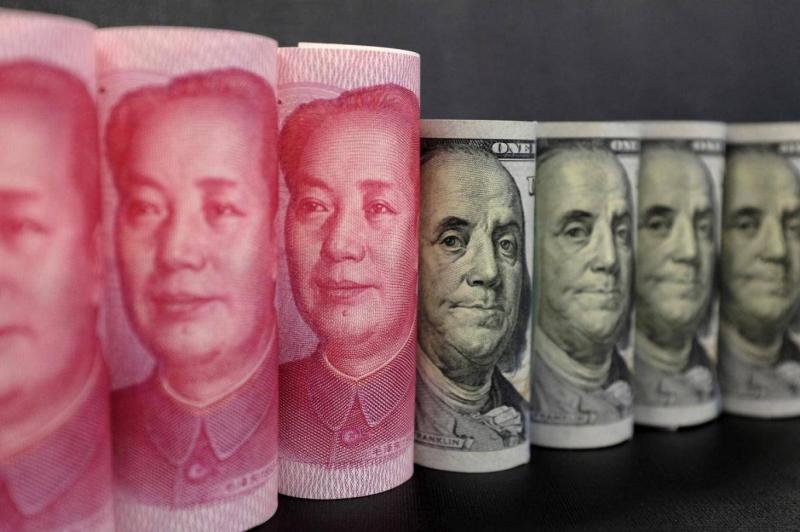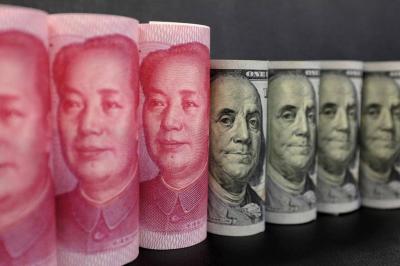The dollar decreased today, Friday, but is still on track to achieve its longest weekly winning streak in nine years, supported by a set of strong U.S. economic data that also cast doubt on the Federal Reserve's (U.S. central bank) potential end to its interest rate hike cycle. Meanwhile, the Chinese yuan fell in local trading to its lowest level since 2007 under pressure from capital outflows and an expanding yield gap with major economies.
The dollar index, which measures the performance of the U.S. currency against a basket of major currencies, dropped 0.1% to 104.93 points but remained close to a six-month high recorded in the previous session at 105.15 points. The index is set to extend its gains for the eighth consecutive week, up 0.6% so far. The euro has faced losses for eight consecutive weeks but rose in the latest transactions by 0.1% to $1.0709 after dropping to a three-month low of $1.0686 on Thursday.
Dean Sekhof, senior macroeconomist and foreign exchange expert at Nordea Markets, stated, "The relative difference between the U.S. and European economies is becoming a key issue again, and the story of a declining dollar has faded recently." Data released this week showed that the U.S. services sector gained unexpected momentum in August and that unemployment claims reached their lowest level since February last week. In the Eurozone, industrial production in Germany, Europe's largest economy, declined slightly more than expected in July.
The British pound rose from a three-month low recorded on Thursday and reached $1.2496 in the latest transactions, although it is still headed for a weekly loss of more than 0.7%. The yuan opened at 7.3400 against the dollar in trading within China on Friday and reached its lowest level since December 2007 at 7.3510 against the dollar. It also fell in overseas trading, plummeting to its lowest level in ten months at 7.3621 against the dollar. The value of the Chinese currency has steadily declined since February, as the struggling economic recovery post-COVID-19 and the widening yield gap with other economies, especially the U.S., have affected capital flows and trade.
The yen stabilized at 147.37 against the dollar. The Australian dollar rose by 0.2% to $0.6392 in the latest transactions but is heading for a weekly loss of 1%. Similarly, the New Zealand dollar is expected to record a loss of about 0.7% for the week, trading recently at $0.59.




